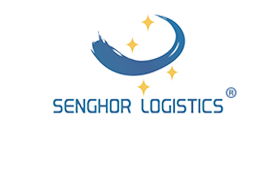Tariff threats continue, countries rush to ship goods urgently, and US ports are blocked to collapse!
US President Trump's constant tariff threats have triggered a rush to ship US goods in Asian countries, resulting in serious congestion of containers in US ports. This phenomenon not only affects the efficiency and cost of logistics but also brings huge challenges and uncertainties to cross-border sellers.
Asian countries rush to ship goods urgently
According to the announcement of the US Federal Register, from February 4, 2025, all goods originating from China and Hong Kong, China entering the US market or being extracted from warehouses will be subject to additional tariffs in accordance with the new regulations (i.e., an increase of 10% in tariffs).
This phenomenon has inevitably attracted widespread attention in the trade field of Asian countries and triggered a large-scale rush to ship goods.
Companies and traders in Asian countries have taken action one after another, racing against time to ship goods to the United States, trying to complete transactions before the tariffs are significantly increased, in order to reduce trade costs and maintain profit margins.
U.S. ports are jammed to the point of collapse
According to data from the Japan Maritime Center, in 2024, the volume of container exports from 18 Asian countries or regions to the United States surged to 21.45 million TEUs (in terms of 20-foot containers), a record high. Behind this data is the result of the combined effect of various factors. In addition to the factors of rushing to ship goods before the Chinese New Year, Trump's expectation of escalating the tariff war has also become an important driving force for this wave of rush shipping.
The Chinese New Year is an important traditional festival in many Asian countries and regions. Factories usually increase production before the festival to meet market demand. This year, Trump's tariff threat has made this sense of urgency for production and shipment even stronger.
Companies are worried that once the new tariff policy is implemented, the cost of goods will increase significantly, which may cause the products to lose price competitiveness. Therefore, they have arranged production in advance and accelerated shipments.
The U.S. retail industry's forecast of increased imports in the future has further exacerbated the tense atmosphere of rush shipping. This shows that the U.S. market demand for Asian goods remains strong, and importers choose to purchase goods in large quantities in advance in order to cope with possible future tariff increases.
In view of the worsening port congestion in the United States, Maersk took the lead in taking countermeasures and announced that its Maersk North Atlantic Express (NAE) service will temporarily suspend the line service of the Port of Savannah.
Congestion in popular ports
The Seattle terminal cannot pick up containers due to congestion, and the free storage period will not be extended. It is randomly closed on Mondays and Fridays, and the appointment time and rack resources are tight.
The Tampa terminal is also congested, with a shortage of racks, and the waiting time for trucks exceeds five hours, which limits the transportation capacity.
It is difficult for APM Terminal to make an appointment to pick up empty containers, affecting shipping companies such as ZIM, WANHAI, CMA and MSC.
It is difficult for CMA Terminal to pick up empty containers. Only APM and NYCT accept appointments, but APM appointments are difficult and NYCT charges.
Houston Terminal sometimes refuses to accept empty containers, resulting in an increase in returns to other places.
Train transportation from Chicago to Los Angeles takes two weeks, and the shortage of 45-foot racks causes delays. The seals of containers in the Chicago yard are cut, and the cargo is reduced.
How to deal with it?
It is foreseeable that Trump's tariff policy will have a significant impact on Asian countries and regions, but the high cost-effectiveness of Chinese products and Chinese manufacturing is still the first choice for most American importers.
As a freight forwarder that frequently transports goods from China to the United States, Senghor Logistics is well aware that customers may be more sensitive to prices after the tariff adjustment. In the future, in the quotation scheme provided to customers, we will fully consider the shipping needs of customers and provide customers with affordable quotations. In addition, we will strengthen cooperation and communication with shipping companies and airlines to jointly respond to market changes and risks.
Post time: Feb-11-2025















